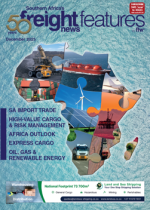SADC countries are actively collaborating to enhance trade and address challenges at their land borders. These border issues encompass trade-related expenses, lengthy border crossing times, the absence of one-stop border facilities, and the lack of harmonisation in cross-border trade systems. Trade impediments and border complications are further exacerbated by high logistics costs due to limited infrastructure capacity and inefficient customs procedures, along with cumbersome visa processing.In a recent development, Namibia and Zambia have inked four agreements to bolster cooperation in industrial development, competition, and standards. Namibia's Trade and Industrialisation Minister, Lucia Iipumbu, has emphasised the need for tariff elimination between the two nations. Notably, the Katima Mulilo border between Namibia and Zambia has transitioned to 24-hour operations, putting an end to the previous practice of border closure at 18:00, which often led to trucks spending nights at the border. This change aligns with Namibia's ambition to become a pivotal logistics hub in southern Africa.Zambian Minister of Home Affairs and Internal Security, Jack Mwiimbu, underscores that this initiative strengthens and consolidates the bilateral cooperation and partnership between the two countries. The One-Stop Border concept enhances the efficient and prompt movement of people, goods, and services at border crossings, eliminating redundant physical inspections. This border serves as a crucial gateway for the Walvis Bay-Ndola-Lubumbashi corridor, connecting Zambia and the Democratic Republic of Congo.Namibia and Zambia have also reached agreements to eliminate non-tariff barriers that had hindered trade, further facilitating smoother commerce between the two nations. Trade statistics for September, as reported by the Namibia Statistics Agency this year, reveal trade f lows at the Wenela Border between Zambia and Namibia amounting to N$871 million. Namibia recorded a trade surplus of N$434m with Zambia in September.Additionally, Namibian President Hage Geingob and South African President Cyril Ramaphosa held discussions in Windhoek on various sectors, including trade, investment, energy, health, education, and security.President Ramaphosa mentioned the potential for South Africa to expand its exports to Namibia beyond current products like chemicals, machinery, vehicles, and steel, while Namibia could diversify its exports to include precious metals, iron and steel products, and live animals.Trade statistics for September on land borders indicated trade f lows of N$204m at the Noordoewer border post and N$271m at the Ariamsvlei border post with South Africa. Furthermore, Namibia and Botswana have entered into a bilateral agreement to establish One-Stop Border Posts (OSBPs) at Mamuno and Trans Kalahari Border Posts. They have also agreed to use national identity cards for cross-border travel between the two countries. Trade statistics for September on land borders between Namibia and Botswana showed trade f lows of N$680m on the Trans-K alahari border

